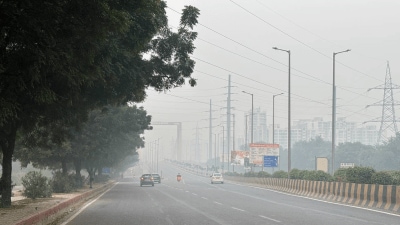Covid cripples immunisation programme in Gujarat: Live births recorded dip by 40 per cent
The latest reports made public by the National Health Mission (NHM) suggest that immunisation was hit hard between April and June to such an extent to set the state back by years, fear experts.
 An indicator of how the immunisation programme was hit in the state in the three months of lockdown is evident from the fact that only about 82 per cent of the planned immunisation sessions could be conducted. (File photo)
An indicator of how the immunisation programme was hit in the state in the three months of lockdown is evident from the fact that only about 82 per cent of the planned immunisation sessions could be conducted. (File photo)Gujarat reported its first Covid-19 case in the third week of March and since July, fresh cases reported daily were over 1,000. The surge in Covid cases had an impact on other health services as well, the major one being the state’s immunisation programme.
The latest reports made public by the National Health Mission (NHM) suggest that immunisation was hit hard between April and June to such an extent to set the state back by years, fear experts.
During the three months, there was nearly 40 per cent decline in live births (1.69 lakh), compared to those recorded between April and June in 2019 (2.70 lakh). For the same period in 2018, 2.66 lakh live births were recorded in Gujarat.
In Ahmedabad district, the dip in live births was as much as 60 per cent between April and June this year (13,800), compared to the 34,500 live births recorded during the same period in 2019. Kutch, Rajkot, Panchmahals, Kheda and Gandhinagar recorded half the numbers compared to last year.
However, a senior district health officer in Ahmedabad said this decline is due to a data entry issue. “Health workers were deployed for Covid-19 work and TECHO entries (software installed in mobile devices, carried by ASHA workers to make data entries in real-time) were stopped,” the district health official said.
On the other hand, there was a spike in the number of children who died due to adverse effects following immunisation in the same period. From three such fatalities across Gujarat in April-June 2018 and one in 2019 reported from Rajkot, the numbers jumped to 75 in 2020, with 46 deaths in Rajkot alone and 14 in Valsad.
Dr Kranti Vora, additional professor at the Indian Institute of Public Health in Gandhinagar and an obstetrician, said that the decreased recording of live births can be equated to a proportional decrease in immunisation coverage and believes that the backlog in routine health programmes will set us back by years.
“This is true not only for Gujarat or India but it is a global issue… my assumption is home births have increased (during Covid-19 pandemic) and registration of these births have been poor… A significant number of births went undocumented even before Covid-19,” said Dr Vora.
However, this under-reporting of live births is much higher than the dip in numbers across India that saw a 27 per cent decline — from 47 lakh live births recorded between April and June in 2019 to 34 lakh live births recorded in the same period in 2020.
District-wise data of Gujarat shows a consistent live birth recording in the three months of 2019 vis-a-vis 2018.
According to the NHM data, among the live births recorded, vaccination coverage remains constant overall for Gujarat, although gaps were observed in districts. Between April and June in 2019, 98 per cent of the infants in Gujarat recorded as live births were administered birth dose of oral polio vaccine (OPV0). During the same period in 2020, lockdown affected the logistics of those in need as well as the delivery of vaccines. Ahmedabad recorded 101 per cent OPV0 coverage between April and June in 2019 compared to 78 per cent of the infants administered the dose this year.
Other districts to report similar drop in OPV0 coverage despite an under-reporting of live child births, include Vadodara, Dang, Rajkot, Mahisagar, Jamnagar and Bhavnagar.
Between April and June 2018, 2.98 lakh children were fully immunised in the state, while in 2019, it was 2.90 children. This year, approximately 2 lakh children were recorded as fully immunised, a drop by 30 per cent. In Ahmedabad, there was a decline of 72 per cent of those fully immunised between nine and 11 months after birth.
Ahmedabad saw the worst surge of Covid-19 cases between April and June, with its health systems stressed.
Dr Vora notes that at the state-level, officials have been more concerned about Covid-19, leading to poor monitoring of routine services such as immunisation programmes. “Local services and state-level policies have to be in place to ensure that routine processes go on along with Covid-19 activities while ensuring the safety of health workers… We had made good progress in educating people about immunisation programmes but these months have set us back. During lockdown it was difficult to manage logistics but the issues will continue beyond the pandemic,” she says. Dr Vora also notes people’s apprehension to visit health care centres amid fear of infection of Covid-19.
An indicator of how the immunisation programme was hit in the state in the three months of lockdown is also evident from the fact that only about 82 per cent of the planned immunisation sessions could be conducted, while in the past two years, nearly all its planned sessions were held.
Dr Vora surmises that it may be at least another nine to 10 months before routine health services may be revived fully and effectively. A major challenge would be to cover those infants who were missed out on vaccination doses as well as covering new ones.







